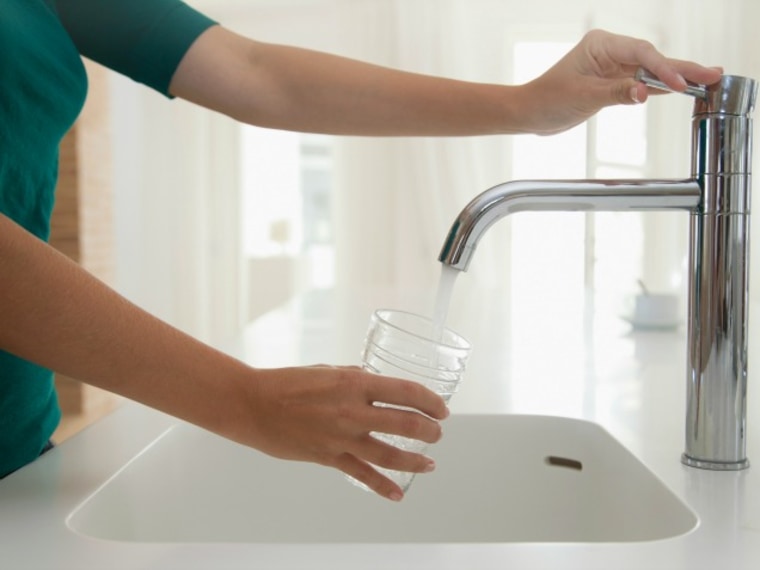There are two kinds of diets: healthy and unhealthy. A good diet helps you adopt a healthier lifestyle, keeping you active and eating good-for-you foods, not cutting you off from essential nutrients. Anything else might promise quick weight-loss results, but spoiler alert: you'll just end up gaining the weight back. A water diet is no different.
What is a water diet?
It's one of the latest dieting trends, with many variations that all have one thing in common: they’re extreme. You don't eat and only drink water. Some water diets tell you to drink water for a few days, but let you add in fruits and vegetables once you've begun to lose weight. Other water diets allow you to have apples with your water.
"It's just another name for fasting," says registered dietitian and co-founder of Appetite for Health, Julie Upton, R.D., C.S.S.D.
If you're a healthy person, a few days of fasting probably won't hurt you, according to Upton, but it's a bad way to lose weight. "You'll be so hungry and just revert back to your normal eating patterns after trying this and you'll gain any weight that you lost," she says.
What are the risks of a water diet?
When your main (or only) intake is water, your body loses crucial nutrients it needs. The short-term result is that you will lose a lot of weight, most of which will be water not fat, says Upton. "You lose more muscle compared to people losing weight from a recommended calorie reduction of 500-800 calories per day from their normal intake. What this means is that [once off the water diet] you'll have to eat much less [to maintain weight loss] because your metabolic rate will have dropped significantly."
And if you don’t get enough water while fasting, you risk side effects like dehydration, which can result in dizziness, fainting, constipation and headache, just to name a few.
What about a cold water diet?
It's not actually a diet—there are no restrictions on what you eat, the only stipulation is that water must be cold when you drink it. The body burns extra calories heating up ice-cold water to the normal body temperature of 98.6 degrees. (The colder the water the more calories burned). Drinking plenty of water also leaves you you feeling fuller longer, making you less inclined to overeat. And water flushes out any toxins that build up in the body.
The bottom line
We should all be drinking plenty of water every day, but not in lieu of eating! The Mayo Clinic suggests drinking nine beverages a day—if you want to make them cold to try to shed a few extra calories, go right ahead. But if you want to lose weight and keep it off, a water diet is not the way to go. "Skip this fad and lose weight and tone up the way that works: Cut out lazy calories (added sugars, saturated fats) and exercise," says Upton. "You'll feel a lot better and it's more likely to last."
You can follow iSydney Herwig on Twitter and Google+.
A version of this story originally appeared on iVillage.
